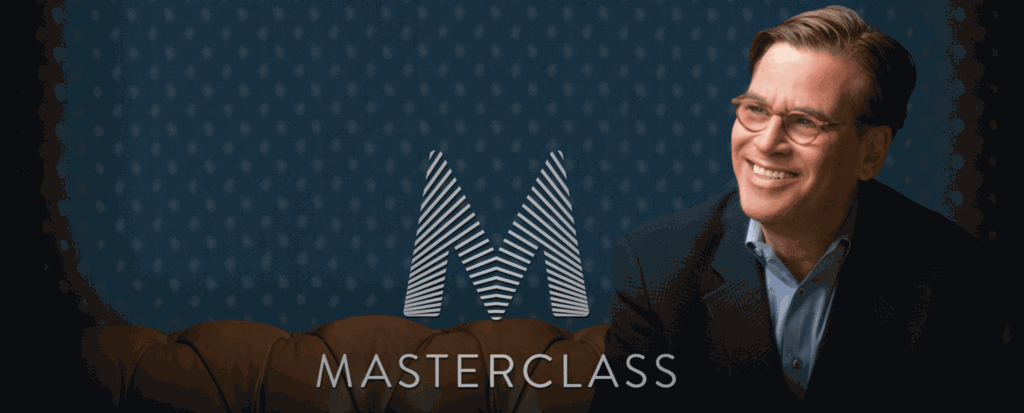Who taught it best?
Online academic institute Masterclass promises “access to genius,” and the roster of instructors certainly includes some of the stars of their respective fields providing hard-earned lessons to anyone with $90 and a burning desire for wisdom. The Awl is proud to have sent some of our favorite writers to school. Here’s what they learned along the way.
Laura Olin on Aaron Sorkin:
He identifies himself early on as possibly a crap teacher because he has thought patterns that don’t move in particularly linear and helpful ways. He is a man who has written a lot about politics and knows something about expectation-setting — set the bar low, and it’ll be easy to top it.
Reeves Wiedeman on Serena Williams:
If you are struggling with consistency, Serena recommends a drill in which you try to keep the ball in play with your partner as long as possible, the consequence of missing being that the other person gets to, literally, beat you up. (Serena, with a smile: “As I you see I don’t have bruises.”)
Patrick Hoffman on James Patterson:
I finished my three-hour MasterClass in two sittings. The class’s stated goal was to “set out to write a best-selling book.” But the actual experience of watching James Patterson riff brought up a different central question: Why is James Patterson so comfortable with himself?
Marian Bull on Usher:
Most of what Usher gives us are platitudes, interspersed with encouragement and weird interjections about his abs and the way women liked to be talked to and how it’s actually possible for a dude to have sex appeal in the absence of a six-pack. (On sex appeal: “It started when I decided to make my abs a part of the conversation…. Women love a man who can make them smile, so use that….On the other hand, you’ve got chicks who love when you talk to them crazy…. Sensuality isn’t the only way to go; you can actually be smart. You can actually have a brain. And that’s sexy!”) His objective — teaching us the Art of Performance — is murky, and you get the sense that he hasn’t defined it himself. He’s mostly just talking about How To Be Usher. How does a natural performer explain the magic of what he does?
Jesse Andrews on Werner Herzog:
His accent at times is pure Dada, more Martian than Bavarian. He finds preposterous multi-vowel diphthongs in what should be completely straightforward monosyllables: “day,” “work,” “how,” “dream.” Through the dogged, loving overuse of his favorite words — “insipid,” “grotesque,” “grandiose,” “banality,” “enormity,” “bozo” — he has created his own genre of diction, a collection of English’s most vivid and piquant descriptors of the (usually awful) extremes of the human experience, words clustered at the poles of the extraordinary and the mundane, language that I think of as Werneralia.
Kelly Conaboy on Christina Aguilera:
Our shared rebellion is just one of many things I found out I had in common with Christina Aguilera over what felt like the 100 hours we spent together. Other things: we were both army brats, we both like flowers and candles, we both like room-temperature water, we both hate sexist double standards, and we both have incredible vocal ranges — far more incredible than the average singer’s vocal range.
You’re dying to know more, right? Well, don’t just pick one, read them all! These are the Masterclasses on the Masterclasses, and knowledge is just a click away .

